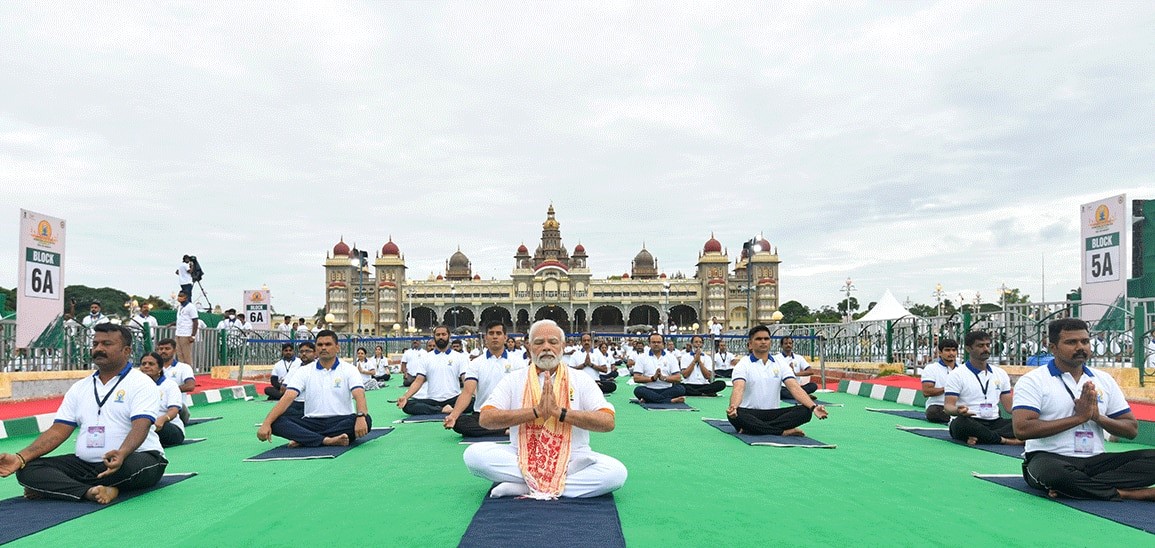Yoga in India: A Critical Wellness Hub
Yoga in India: A Critical Wellness Hub
 One cannot imagine Indian culture and heritage without the presence of Yoga. Tracing its root in ancient India, Yoga is known as an art of attaining spiritual and mental peace.
One cannot imagine Indian culture and heritage without the presence of Yoga. Tracing its root in ancient India, Yoga is known as an art of attaining spiritual and mental peace.Yoga has evolved over the course of time and is considered an effective means of maintaining physical, spiritual, and mental wellbeing. The word ‘Yoga’ is derived from the Sanskrit word ‘Yuj’, which means ‘to unite’. Every Yogic mudra focuses on spiritual alignment between the mind and body, for attaining inner peace.
A brief history of Yoga in India
Yoga traces down its history thousands of years ago in India, early traces were found in the Pre-Vedic period (2700 B.C.). Yoga developed prominently between 500 BC-800 A.D. and has evolved since then. Sage Maharshi Patanjali codified the existing Yoga practices that had been in practice, and which are now performed worldwide. Today in contemporary times, Yoga is a means to preserve and maintain health. It has helped individuals with their well-being, from generation to generation.
Yoga and Indian Culture
Yoga has a presence in the folk traditions, Vedic, and Upanishadic heritage of India. Yoga tends to the body, mind, emotions, and energy and follows four major oaths namely: Karma Yoga focused on the body; Bhakti Yoga focused on emotions; Gyana Yoga, which focused on intellect; and Kriya Yoga, which focused on energy.
In olden times, Yoga education was imparted by gurus in ashrams. In today’s time, several Yoga institutes and colleges are providing lessons on Yoga across India.
Actions@75, The Future of Yoga in India!
India is referred to as the land of Yoga and is continuing to take initiative for promoting the importance of Yoga education. The United Nations General Assembly honored the suggestion of Hon’ble Prime Minister Narendra Modi and declared ‘21st June’ as the International Day of Yoga. This aims to make people aware of the significance of Yoga and the positive changes it can yield in everyday life.
The International Day of Yoga in India is celebrated every year since 2015 with distinct themes such as ‘Yoga for Harmony and Peace’, ‘Connect the Youth’, ‘Yoga for Health, and Yoga at Home’ reflecting the emergence of Yoga as a path for maintaining well-being.
The government aims to equip more and more people with the knowledge of Yoga, preserve Yogic heritage, and introduce it to future generations. Yoga has become a part of the curriculum in schools across the country. The Central Council for Research in Yoga and Naturopathy (CCRYN), an autonomous body under the Ministry of AYUSH, has created eight Yoga outpatient clinics in Delhi and Haryana Government hospitals.
Summing it up
At a time when the world is facing the wrath of the COVID-19 pandemic, Yoga can have positive effects on the mind and physical well-being of individuals. Increasing the involvement of youth in Yoga can yield a generation of Yoga instructors, learners, and promoters who can be the future flag bearers of Yogic culture and heritage.
Comments
Post a Comment